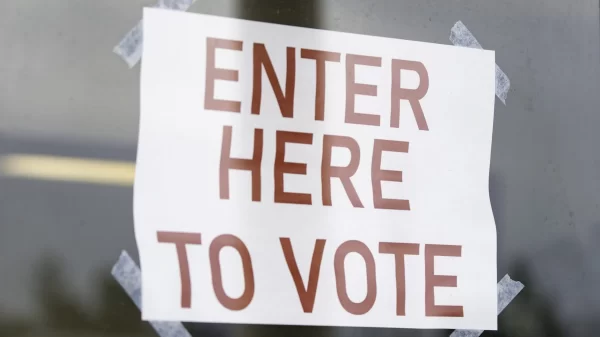By Brandon Moseley
Alabama Political Reporter
Tuesday, the Alabama House of Representatives passed a bill to try to clarify how legislators accept consulting contracts under Alabama’s 2010 ethics law. Some pundits have suggested that House Bill 387 is actually designed to weaken the existing ethics law.
Sponsor state Rep. Rich Wingo, R-Tuscaloosa, argues that the legislation is merely a clarification and is intended to prevent legislators from inadvertently crossing the line into illegality.
Wingo said that his bill would require legislators to notify the Alabama Ethics Commission that they have entered into a consulting agreement in an area outside of their normal scope of work.
State Rep. Paul Beckman, R-Prattville, said, “I have never understood why members of this body were allowed to take contracts as consultants or counselors.”
Wingo said, “Never do I use the word counselor in my bill; it is consulting.”
Beckman asked, “Are we going to be getting into an area where every time we turn around we create a bureaucratic nightmare where we have to go get an opinion. These opinions whether it is orally or written don’t hold up in a court of law.” Beckman said, “We are serving the people here but we get this admonition that we can still be a consultant if we get an opinion.”
Wingo said, “This does not apply to professions where a member is currently licensed.”
Beckman said, “I would like to see more opinions coming out of the Ethics Commission. Right now we have the Ethics Commission competing with the Attorney General’s office over who has more authority.”
State Rep. John Rogers, D-Birmingham, said,”This happened to a friend of mine. He just got out of prison. He was a state senator and had a written letter from the Ethics Commission which his lawyer read at trial and the jury convicted him anyway.”
Rogers never named his friend, but reporters think he was talking about former state Sen. Edward Browning ‘E. B.’ McClain who spent over 22 years in the legislature until he was convicted on 47 counts of conspiracy, mail fraud, bribery, and money laundry in 2009.
A federal jury found that McClain and the Rev. Samuel Pettagrue were guilty in a scheme where McClain would secure public funds for Pettagrue’s community programs and then receive a kickback once the funds were in hand. McClain was sentenced to five years and ten months in prison. McClain was not prosecuted under the Alabama ethics law as the state has a much weaker ethics statute then. The current ethics law was passed in 2010.
Rogers said, “If they offer me a consulting contract for a field like aerospace engineering that I know nothing about they are trying to pay me off. If you can already be a consultant for something you know about why would you seek a consulting contract for something you don’t know about.
Rogers this is how they can pay you off for your vote.”
State Rep. Artis “A.J.” McCampbell said, “I don’t like making changes to things like this because we get into things called unintended consequences.”
McCampbell was reading from the bill and Wingo said, “You are reading from the original version it has completely changed.” “We worked tirelessly on this bill with the Ethics Commission this is not a fly by night bill.”
“If a member of the legislature enters into a contract to do a consulting contract outside of their normal field of work this bill requires that they consult with the Ethics Commission first,” Wingo said. “It is up to the member to notify the Ethics Commission not to the company or person offering them the money.”
State Representative Pebblin Warren, D-Tuskegee, said, “Everybody but legislators are allowed to do contract work up to $30,000.”
Rep. Wingo said, “This is not intended to be a roadblock.”
State Representative Arnold Mooney, R-Indian Springs, said, “The whole purpose of this is not to prevent members from doing work in your field.” “What you are doing is offering to protect me.”
State Representative John Knight, D-Montgomery, asked Wingo what the Alabama Attorney General said about this legislation.
Wingo replied, “I have not contacted the Attorney General.”
Knight responded, “Something from the Ethics Commission does not carry a lot of protection from the Attorney General. We have seen that in the past. I think the Attorney General and the Ethics Commission should be in agreement in the working on this.”
Wingo answered, “Maybe this is a first step.”
Rep. Laura Hall, D-Huntsville, asked, “Do we have anybody doing work outside of their regular scope of work?”
Wingo answered, “Yes I think so.”
Wingo said, “If we had had this bill four or five years ago maybe we could have been spared the embarrassment that this body experienced with the former Speaker.”
Wingo was referring to former Speaker of the House Mike Hubbard who was convicted of 12 counts of felony ethics violations in June 2016. Ironically, Hubbard is largely responsible for creating the ethics law that he was found guilty of violating 11 times in his relentless pursuit of outside contracts and personal wealth.
Unlike McClain, however, Hubbard has not yet served any of this sentence.
House Bill 387 passed 67-0 with 26 legislators abstaining.
The bill now moves to the Senate for its consideration.
(Original reporting by the Alabama Media Group’s Lisa Osborn in 2009 was consulted in this report.)





















































